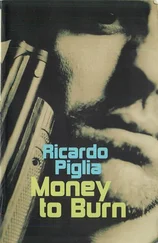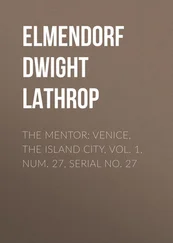At first they thought that he worked for the police because he would publish articles before the events occurred. All he had to do was lift up the telephone and he would get the stories two hours before they happened. He was not yet thirty years old but he looked like a man of sixty: his head was shaved and he had an obsessive, typically English gaze, with small crossed eyes focused on some distant point, as if he were looking out to sea. His father, according to Renzi, had been one of those failed engineers sent from London to oversee the loading of the cattle into trains from the winter pastures of the large cattle ranches. They had lived for ten years in Zapala, at the end of the railroad lines of the Ferrocarril del Sur. Beyond that was the desert, the dust from the bones left behind in the wind from the slaughtering of the Indians. Mr. MacKensey, Junior’s father, was the station master; he had a chalet with red roof tiles built just like the one where he had lived in England. The mother was a Chilean woman who left with her youngest daughter and went to live in Barcelona. Renzi learned the story when a cousin of Junior’s came to look for him at the newspaper once, but for some reason the lunatic did not want to see her. The young woman was a fun-loving redhead. Renzi took her to a bar and then to a hotel that charged by the hour; at midnight he escorted her to Retiro Station and left her on the platform in front of the train. She lived in Martínez, was married to a naval engineer, and thought that her cousin was a misunderstood genius obsessed with their family’s past.
Junior’s father had been just like Junior: a delirious and disturbed individual who would stay up all night in Patagonia listening to shortwave transmissions of the BBC from London. He wanted to erase the traces of his personal life and live like a wild man in an unknown world hooked into the voices that reached him from his country. According to Renzi, his father’s passion explained the speed with which Junior had picked up on the first defective transmissions from Macedonio’s machine. “A typically British reaction,” Renzi would say, “to teach a son with the example of a father who spends his life with his ear stuck to a shortwave radio.” “It reminds me,” Renzi said, “of the times of the Resistance, when my old man would stay up all night listening to the tapes of Perón that a contact from the Movement clandestinely brought him. They were first-generation tapes that used to slip and come unwound; they were brown and you had to put them on heads this big and then close the lid of the tape player. I remember the silence and the buzz of the tape before the recording would come in with Perón’s exiled voice; he always began his speeches with ‘Compañeros,’ followed by a pause, as if he were leaving room for the applause. We sat around the kitchen table at midnight, engrossed like Junior’s father, believing in that voice that came out of nowhere, always slower than normal, distorted somehow. It should have occurred to Perón to speak through shortwave radio. Don’t you think?” Renzi asked and looked at Junior, smiling. “From Spain, in nighttime transmissions with the electrical discharges and interference, because that way his words would have arrived at the same time that he spoke them. Don’t you think? Because we heard the tapes when the events had already changed and everything seemed late and out of place. I remember that every time someone talks to me about the machine’s recordings,” Renzi said. “It would be better if the story came straight out, the narrator should always be present. Of course I also like the idea of stories that seem to be outside time and start again every time you want them to.”
They had gone down to the bar to get a sandwich after the dead-lines were in. While Renzi talked about Perón’s voice and the Peronist Resistance and began to tell the story of a friend of his father’s, Little Monkey showed up to let Junior know that he had a telephone call. It was three in the afternoon on a Tuesday and the street lights were still on. Through the window one could see the electric lights glowing in the sun. “It looks like a movie,” Little Monkey thought, “like the screen in a theater before the movie starts.” He could hear what they were saying at the table as he approached, as if someone were turning up the volume on a radio.
“He was crazy — totally, totally crazy,” Renzi was saying. “He’d yell ‘Viva Perón!’ and take on whatever came along. ‘To be a Peronist, above all,’ he would say, ‘you have to have balls.’ He could build a pipe bomb in half a minute, anywhere — in a bar, in a plaza, he’d move his little fingers like this, like a blind man. His family had a cache of arms on the corner of Martín García and Montes de Oca, so he was born playing with rods and pieces. In the Peronist Movement the guys called him Friar Luis Beltrán, and by the end everyone called him The Friar, except for a few who knew him from the beginning, from the very beginning of the mess, around ’55 or ’56, who called him Billy the Kid, which was the name that he had been given by Fat-Man Cooke, because just by looking at him you knew he was a young Turk, thin and delicate, you’d guess he was about fifteen or sixteen years old and already everyone and their brother was after him.” Several people had gathered around Renzi at the table of the bar Los 36 billares. Little Monkey became distracted for a moment and stopped to listen to the story; then he made a dialing gesture in the air and Junior realized that the woman must be calling him on the telephone again. “It’s her,” Junior thought. “For sure.” Some unknown woman had been calling him on the telephone and giving him instructions as if they were lifelong friends. The woman must have been familiar with the articles he had been publishing in the newspaper. Ever since the rumors of certain imperfections of the machine had been confirmed, a series of maniacs had begun to relay confidential information to him.
“Listen,” the woman said to him. “You have to go to the Majestic Hotel, on Piedras and Av. de Mayo. Did you get that? Fuyita, a Korean, lives there. Are you going to go or not?”
“I’m going,” Junior said.
“Tell him that it’s me. That you spoke with me.”
“Done.”
“Are you Uruguayan?”
“English,” Junior said.
“Come on,” she said. “Don’t joke around, this is serious.”
The woman knew everything. She had the facts. But she mistook Junior for a friend of her husband’s. Sometimes, at night, she would wake him up to tell him that she could not sleep. “It’s very windy here,” she would say, “they leave the window open, it feels like Siberia.”
She spoke in code, with the allusive and slightly idiotic tone used by those who believe in magic and predestination. Everything meant something else; the woman lived in a kind of paranoid mystical state. Junior wrote down the name of the hotel and the information about Fuyita. “There’s a woman living in a room that’s an absolute dump; she’s Fat-Man Saurio’s girlfriend. Are you getting all this down?” she asked him. “They’re going to close the Museum, so hurry. Fuyita is a gangster, they hired him as a security guard.” Suddenly, it occurred to him that the woman was in an insane asylum. A madwoman who called him from Vieytes Clinic to tell him a bizarre story about a Korean gangster who was a guard at the Museum. He imagined a pay phone at the hospital. That apparatus — on the dilapidated wall, in an open passageway, in front of the bare trees in the park — was the saddest thing in the world. The woman talked constantly about the machine. She relayed information to him, told him stories. “She’s connected, but she doesn’t even know it. She can’t free herself, she knows she has to talk to me, but she’s not aware of what’s happening to her.” Still, he confirmed all the facts and arranged to go to the Majestic. He had to use the informants he had. He did not have too many options. He was moving in the dark. The information was very well controlled. Nobody said anything. The fact that the street lights were always on was the only thing that revealed that there was a threat. Everybody seemed to be living in parallel worlds, unconnected. “I’m the only connection,” Junior thought. Everyone pretended to be a different person. Shortly before dying, Junior’s father had remembered a program he had heard on a BBC transmission about psychiatry called “Science for Everyone.” A doctor explained on the radio that you had to be careful when you came across a delirium of simulation; for example, that of a raving madman capable of docility, or of an idiot capable of feigning great intelligence. And his father laughed; his lungs hissed, he had difficulty breathing, but there he was, laughing. You never know if a person is intelligent or if they are an imbecile pretending to be intelligent. Junior hung up the telephone and returned to the bar. Renzi was already telling another episode from the story of his life.
Читать дальше












